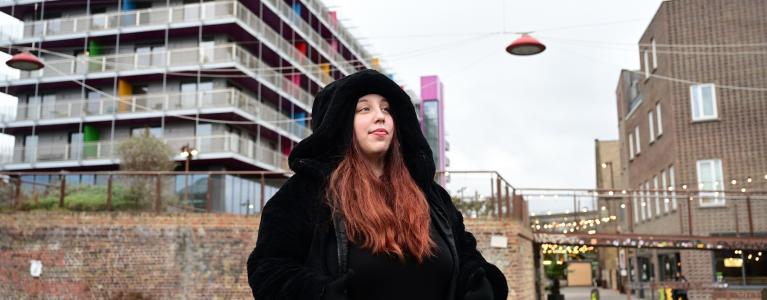
Insights into the Mayor’s London Borough of Culture programme: interview with artists of Sounds Like Chaos
London Borough of Culture can be an exciting chance to innovate approaches to creative health. As part of Lewisham’s year as London Borough of Culture, The Big Conversation brought together young people from four youth arts organisations to ask: can arts and creativity be tools to support mental health, wellbeing, and happiness of young people?
We interviewed Lewisham native and artist Rofeda Bougaga and Gemma Rowan of youth arts collective Sounds Like Chaos.
Rofeda, as a young person who’s been an instrumental part of this process, could you tell us a little about it?
Yes, myself and a team of other young people have been gathering data using surveys, interviews and podcasts over the last year, to produce a creative report showing the positive link between mental health and creativity amongst young people in Lewisham. It will highlight the role of different programmes that have had made a positive impact, such as the Albany and Sounds Like Chaos.
What is the consensus so far on youth creativity and mental health?
I've found that a wide range of people believe, from their own experiences, that being involved in creative projects has positively impacted their mental health. One participant described a tough situation at home and said that stepping on the dance floor gave them an avenue to release and express their emotions. Dance became a healting space for them. There’s a recurring theme in the responses we’ve had about how getting involved in creative activities enables people to enter a different mindset, to feel in control and empowered; it provides an avenue for expression.
Could you talk to me about how creativity has impacted your own journey?
I was in a much darker place before I started going to Sounds Like Chaos. I was under a lot of pressure and experiencing issues at home. Coming to the space allowed me to switch off and momentarily ignore what was going on in the rest of my life. While I was there, it was as though my problems had faded away.
My experience with Sounds Like Chaos has been a catalyst for my passion for performing arts. Since participating in their programmes, I became interested in creative writing to the point that, today, I am writing my own play. I also enjoy acting and writing and performing my own spoken word. Opportunities like this can prevent people from going down the wrong path.
Writing and performing spoken word has become my trauma response. It enables me to take control over situations when I feel powerless, and I realised you have to talk about something to heal from it. Through various creative projects I have been involved in, I have learned to govern and express my emotions, regain my sense of self, and find peace.
Do you think young people guiding programming and speaking about mental health has provided a space for others to be more open?
There is real power in being vulnerable. I have found that by speaking out and performing, other people I know also feel more open and comfortable sharing their experiences. The arts can provide a platform to express what we may have never shared. Projects that give us a voice allow us to regain control and empower ourselves.
Gemma, the programming at Sounds Like Chaos sounds amazing, and the Big Conversation is allowing young people to talk about mental health in their own words - how have you found it?
There's been so much learning amongst young people about mental health. The Big Conversation has allowed our young people to delve into peer-led research, creative approaches, and how they can be shared. It doesn't always need to be a survey. It can be a video, podcasting or even a song, and it's essential to understand how artforms integrate with research. The whole process has allowed a certain amount of openness because it's important not to keep mental health hidden in the dark. We're talking about lived experience, and our lived experiences are a massive part of our culture, who we are and the stories that we choose to tell. And I think something special happens when a 15 year-old is open about their mental health. It's social acupuncture. The Big Conversation, sitting within the London Borough of Culture programme in Lewisham, just makes so much sense. It has been a really great vehicle for understanding and gathering more knowledge about young people and their particular struggles guided by them.
Playing this video will set cookies from YouTube/Google
Find out more about A Big Conversation and the podcasts created.
And also…
Mayor of London supports work to better embed creative approaches to children and young people’s mental health. This includes 2.8 Million Minds, a youth-led manifesto. Find out more and join the network.